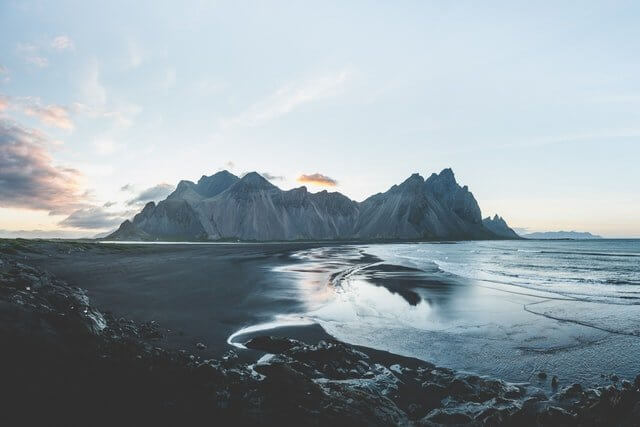In collaboration with the agency Climbing Trees, we discussed the past, present, and future of photography and how AI is impacting photography, both positively and negatively.
Photography has never been easier, better, or more accessible to everyone. This is the reality of modern photography, and it’s undeniable. In recent years, the world of photography has undergone a significant transformation through the integration of artificial intelligence (AI) technology. AI has revolutionized the way we capture, edit, and enhance images, opening up a whole new realm of possibilities for photographers. From intelligent camera features to automated editing tools, AI has proven to be a game-changer in the world of photography.
The final question is: How is AI affecting creativity, and how can we become better photographers in a world where everything seems perfect?
Before we attempt to answer this question, it’s important to fully understand how AI is influencing modern photography. You may not have noticed it, but you’ve been using AI to enhance your photography for longer than you might think.

AI-driven camera technology and features
Perfect night mode and long exposure photography with a lens the size of a grain of rice? Yes, AI has played a significant role in achieving that.
AI has propelled camera technology to new heights, enabling photographers to capture stunning images with more ease than ever before. Modern cameras employ sophisticated AI algorithms to enhance image quality, resulting in vibrant and detailed photographs. For example, digital cameras can now capture and merge multiple shots into one to expand the dynamic range and reduce noise in low-light conditions, ensuring that photographers can capture breathtaking images even in challenging lighting situations.
Furthermore, AI has enabled cameras to automatically detect and optimize settings for specific scenes, whether it’s landscape, portrait, or night photography. Cameras can analyze the scene and adjust exposure, white balance, and other parameters to achieve the best possible result. This not only saves time but also ensures consistent and high-quality images.
Read more: All You Need to Know About Trip Cancellations and Travel Insurances

Facial recognition and precise tracking
AI is not limited to just iPhone and Samsung cameras; professional photographers using the latest Sony and Canon models also benefit from these advances. For example, the Sony A7R V can now recognize and track various subjects, including human faces, dogs, cats, birds, insects, and even cars and planes. This feature is particularly useful in situations where the camera needs to automatically focus on the subject’s face and track their movement, ensuring sharp and well-exposed images.
Also, some Canon mirrorless models even handle focus adjustments after taking the photograph. You can now choose which segment to focus on after capturing the image, a capability that was once unthinkable for those who used manual lenses.

Image editing and enhancement
In addition to image capture, AI is also revolutionizing the way we edit and enhance photographs. Photo editing tools now utilize AI algorithms to eliminate noise, enhance detail, and overall image quality. These tools can automatically detect and remove unwanted elements from photos, such as blemishes or distracting objects, as well as enhance sharpness, contrast, and colors, resulting in visually stunning photographs.
However, it’s important to note that Photoshop and similar tools make automatic changes that many photographers would consider taboo. Post-processing is evolving from merely enhancing images to changing them to unrealistic standards.
Moreover, AI-powered editing tools can analyze the image’s content and suggest edits based on recognized patterns and styles. This not only speeds up the editing process but also provides photographers with creative inspiration and new possibilities for their work.

Automating repetitive tasks
One of the significant advantages of AI in photography is its capacity to automate repetitive tasks, thus saving time and effort for photographers. Tasks such as organizing and categorizing extensive photo libraries, keyword or geo-tagging, and even basic editing can now be automated using AI algorithms. This allows photographers to concentrate more on the creative aspects of their work, rather than becoming entangled in repetitive chores.

Ethical considerations of ai in photography
While AI brings numerous benefits to the world of photography, it also raises ethical considerations that need to be addressed. One of the main concerns is privacy, particularly with facial recognition technology. As cameras become more adept at identifying individuals, there is a risk of infringing on people’s privacy rights.
Another ethical consideration is the potential for AI to manipulate images and deceive viewers. As AI algorithms become more advanced, they can generate realistic images that may be indistinguishable from actual photographs. This raises concerns about the authenticity and trustworthiness of images in the digital age. In almost all cases, raising awareness about the possibilities and limitations of AI-generated images is essential to maintaining integrity in the field of photography.
Read more: How to take better night photography

What are my thoughts on all of this?
Photography has been an art form since its inception, and with the current advances in AI technology, there might be a point at which traditional methods are considered the true art of photography.
There is a unique beauty in the imperfections of photography. As a photographer who frequently prints large-scale images, I’m drawn to images that aren’t perfectly sharp and where image noise is visible.
Moreover, photography is continually evolving, and it’s not up to camera technology to determine what constitutes a great photograph. It’s the creativity of the photographer that matters. Like any other art form, photography is evolving, and new creative minds will come up with groundbreaking ideas about how photography is perceived. In a world filled with perfect images and perfect smiles, a photographer capturing the raw and imperfect aspects of life could very well become a new trend.
Fun fact: All the images used in this articles were prompt generated using Midjourney
Read more: How to photographed the stars in the Caribbean







